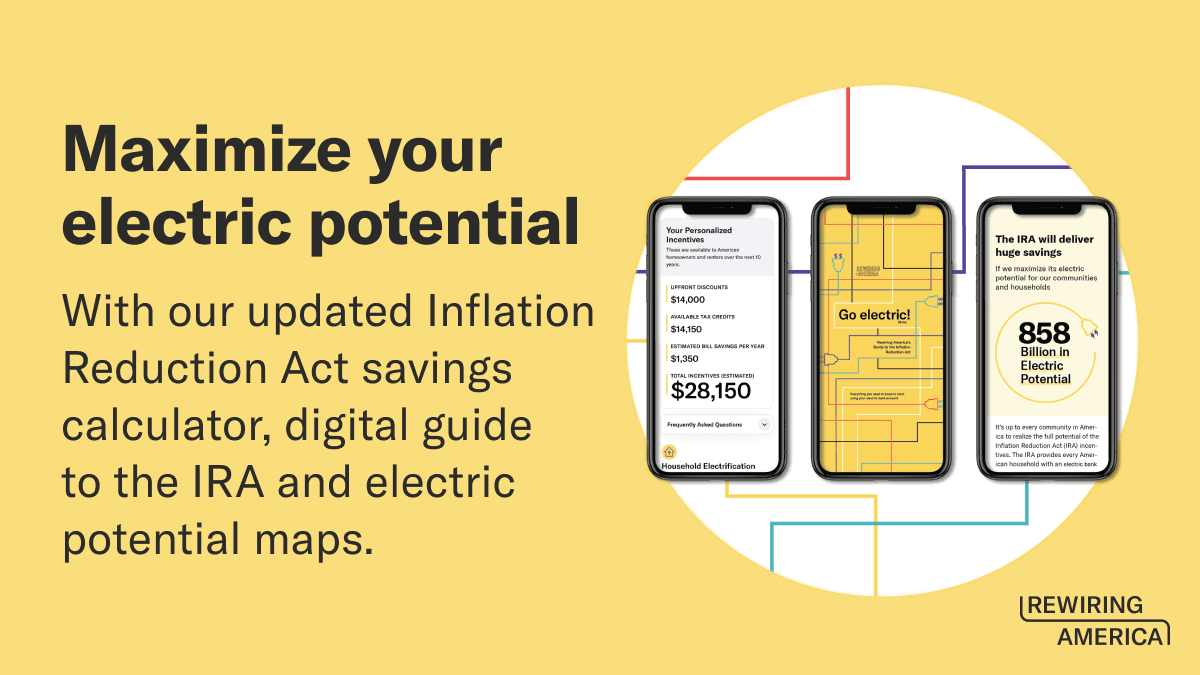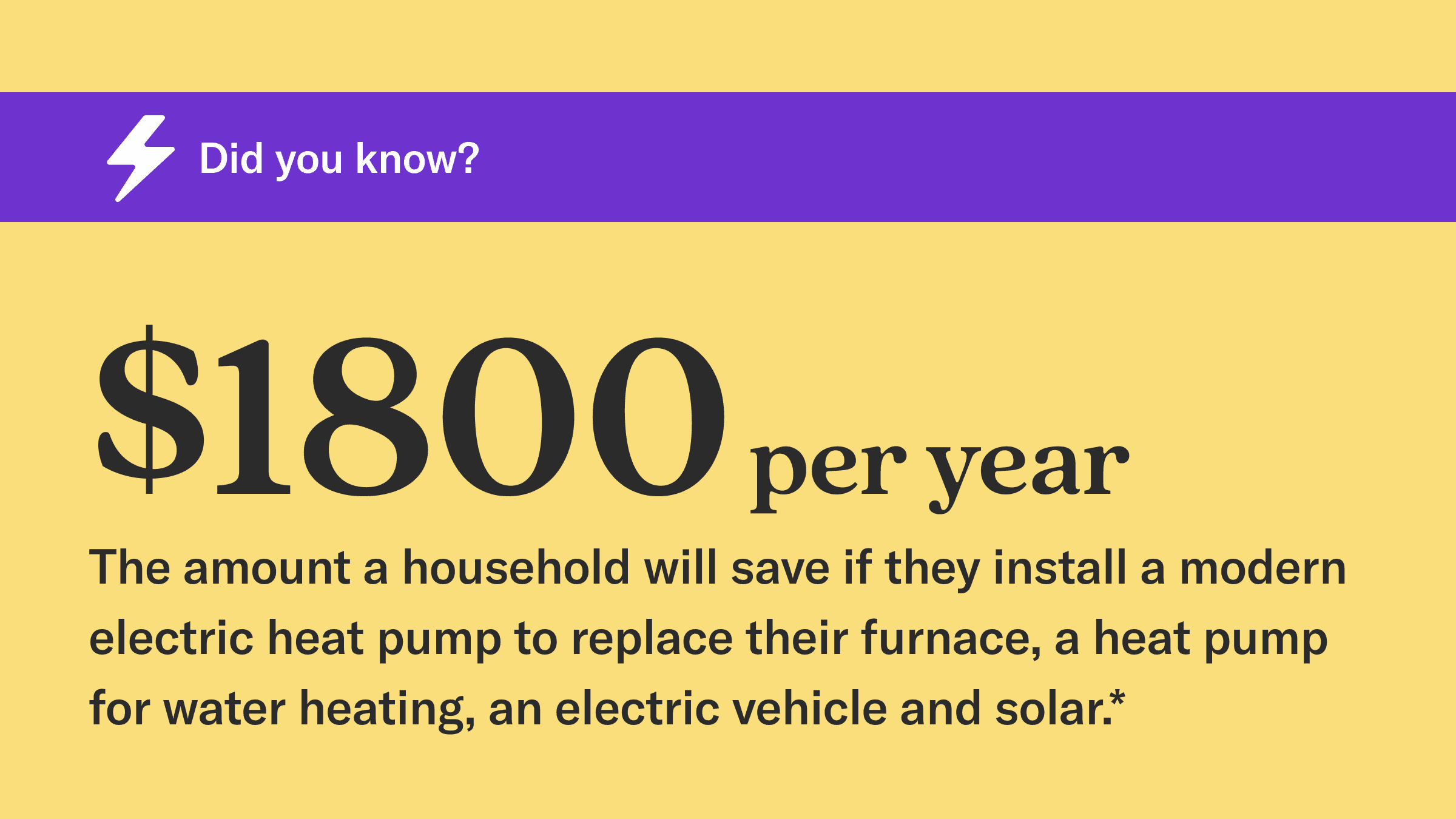The Inflation Reduction Act is full of incentives to help American families go electric. This page explains the programs in the Inflation Reduction Act and provides an update on their status.
For the latest information on rebate availability in your community, please consult your state energy office’s website.
What is the Inflation Reduction Act (IRA)?
The Inflation Reduction Act is the largest clean energy investment America has ever made, with strategic incentives to make the transition to clean energy and a decarbonized life easy and financially smart. Its home energy offerings include upfront discounts or "rebates," tax credits, and low-cost financing that together provide a substantial pot of money for every household to electrify the machines we rely on — the cars we drive, how we heat the air and water in our homes, cook our food, dry our clothes and get our power — regardless of income level.
What are the Home Electrification and Appliance Rebates (HEAR)?
The Home Electrification and Appliance Rebates (HEAR) or “electrification rebates” make it more affordable for more Americans to install electric appliances and complete electrification upgrades for their homes. These rebates are for select electric appliances and upgrades and will roll out state by state, with most arriving in or after 2025.
As of January 30, 2025, electrification rebates were available in Arizona, California, Colorado, Georgia, Maine, Michigan, New Mexico, North Carolina, New York, Rhode Island, Washington, D.C., and Wisconsin.
Some states have paused or delayed their programs due to recent uncertainty regarding federal funding. We are continuing to monitor the situation. For the latest information on rebates in your state, please consult your state energy office’s website.
For the latest information, see Atlas Buildings Hub's Home Energy Rebate Tracker.
To learn more about electrification rebate eligibility, visit our electrification rebates guide.
What are the Home Efficiency Rebates (HER)?
The Home Efficiency Rebates (HER) or "efficiency rebates" are designed to reward energy efficiency retrofits that are modeled to achieve, or have achieved, verifiable minimum energy use reductions. These rebates are for modeled energy savings or measured energy savings and most programs will come online in or after 2025.
As of January 30, 2025, efficiency rebates were available in Georgia, Michigan, North Carolina, Washington D.C., and Wisconsin.
Some states have paused or delayed their programs due to recent uncertainty regarding federal funding. We are continuing to monitor the situation. For the latest information on rebates in your state, please consult your state energy office’s website.
To learn more about efficiency rebate eligibility and funding, visit our efficiency rebates guide.
What about tax credits?
Recent purchases of new and used electric vehicles, heat pumps, heat pump water heaters, and other electric upgrades may be eligible for tax credits. All tax credits are available now.
To learn more about tax credit eligibility, check out our tax credit guide.
What benefits does the IRA offer to contractors and manufacturers?
To learn more about the incentives and funding in the IRA available for contractors and manufacturers, download our IRA Fact Sheets.



